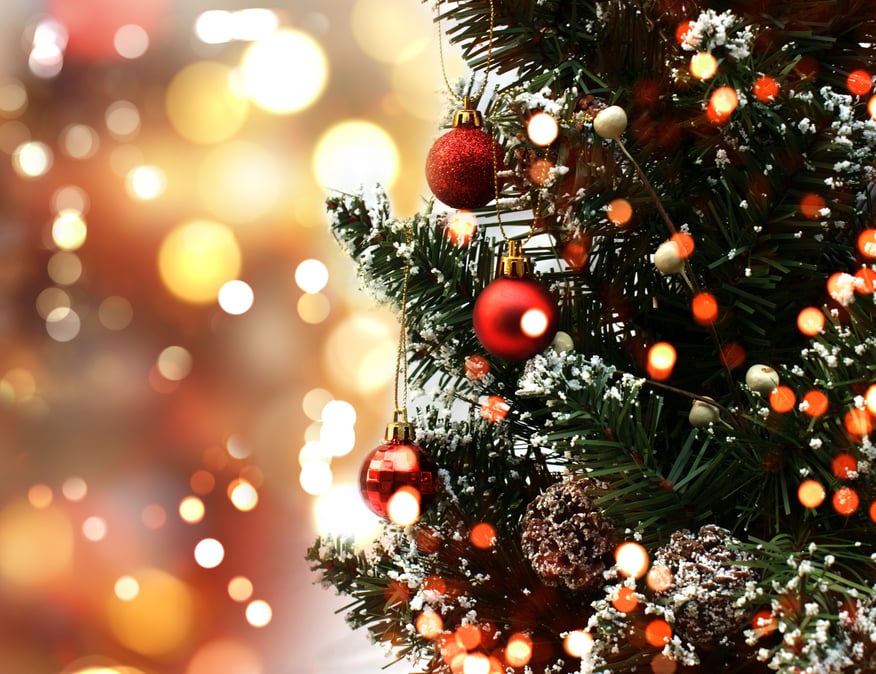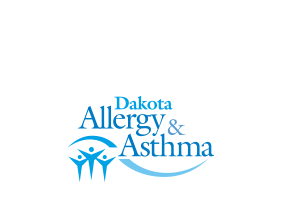Every December, it seems to be the same story: the Christmas tree goes up, and suddenly you start feeling worn down. Perhaps you experience sniffles, a plugged nose, coughing, or other yuck. So you ask yourself: Can I be allergic to Christmas trees?
After all, December should be a time for celebration, for getting together with friends and family, for appreciating beautiful holiday decorations (lights, tinsel, and trees). You don’t want to spend the season nursing a runny nose if you don’t have to.
So is it your tree making you sneeze? Or is something else going on? The answer can help you get back to enjoying the holidays.

Can You Be Allergic to Christmas Trees?
Because of its central proximity to all those holiday festivities (and your subsequent sneezing), it’s not completely illogical to suspect that your Christmas tree is the culprit. After you’ve taken all that time to decorate with care, isn’t it possible your yuletide tree is making your nose run?
Well… probably not. If you have a natural Christmas tree up in your living room, it pollinated last spring (so you don’t have to worry about pollen grains). True, the bark and needles of the tree could be harboring some mold spores, but the amount wouldn’t be significantly more than what is already present on other surfaces of your home. You can also keep any possible mold out of the water stand by keeping it fresh and changing it regularly.
If you’re celebrating around a natural Christmas tree, the one thing you should keep an eye out for is the tree sap. Some people are allergic or particularly sensitive to tree sap, and exposure can cause a rash (much like the rash you get from poison ivy). You can avoid accidental contact with tree sap by making sure you wear long sleeves when you’re in close proximity to the tree (for example, when you’re decorating).
If It’s Not the Tree, What is It?
If the Christmas tree is not the likely culprit, what is? Apparent symptoms of an allergic reaction to Christmas trees are quite similar to symptoms of common illnesses, such as the common cold. It’s entirely possible that those cozy family get-togethers make it easy for various bacteria and viruses to move from person to person. In that case, your sniffling and sneezing is more likely due to infection, brought about seasonally because of the prevalence of social activities.
Likewise, December is that time of year when we typically spend most time indoors with the windows closed. This provides an excellent opportunity for common indoor allergens to build up in your home. So your symptoms may not be due to your Christmas tree at all--they could instead be caused by concentrated dander from your cat, Fluffy. Dust mite allergy is particularly problematic at this time.
The close proximity of all these indoor allergens can also make your asthma flare-up--further exacerbating your symptoms.
Can You Be Allergic to Artificial Trees?
In most cases, artificial trees are going to be even less likely to cause allergic reactions. But there is a caveat: when you keep your tree in a closet year-round, it’s going to get dusty. And that dust (or, rather, elements in that dust--pet dander, dust mites, and so on) can aggravate your allergies and asthma.
So your artificial tree in and of itself is unlikely to be the cause of your stuffy nose. It’s the dust you need to be careful about. If you store your tree in a way that minimizes the accumulation of dust and household particles, you should be able to avoid triggering your allergies.
Solutions for Holiday Cheer without Allergies
If your allergist has confirmed to you that your Christmas tree is the culprit (it’s unlikely, but not impossible), there are a few things you can try. For example, washing your tree down might help get rid of some of that dust and mold. If you purchase a natural tree, you can ask the tree sellers to shake it out for you. (And, again, avoid the tree’s sap by wearing long clothes when you decorate.)
If you’re using an artificial tree, you should store that tree somewhere cool and dry--and away from dust. Make sure your tree is not easily accessible to rodents, insects, or other critters.
Remember, if you are sick—don’t pass it to your family and friends!
Getting the Most out of the Holiday Season
Just as you shouldn’t be discouraged from enjoying your Christmas tree, you shouldn’t be deterred from enjoying time with your friends, family, or pets.
The real answer is to get on top of your allergies, determine what their cause is, and have a game plan on how to deal with the expected complications of infections.
CLICK HERE: for tips on how to start tackling your allergies on your own.
CLICK HERE: to determine if you should see an Allergist. Working with a Board-Certified Allergist can more effectively start you on the right course to conquering your allergies and enjoying the holiday!




